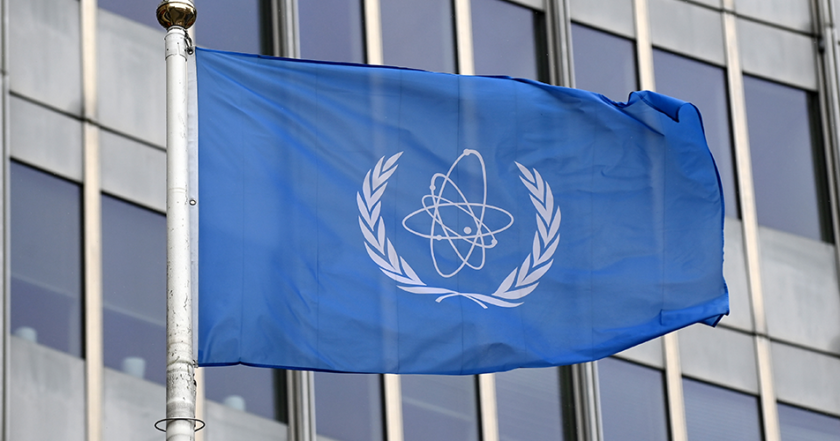Russian strikes damage key nuclear safety substations in Ukraine – IAEA

On the night of November 16 and early morning of November 17, Russian shelling damaged four electrical substations that the IAEA has identified as critical to nuclear safety.
IAEA Director General Rafael Grossi stated this.
"The situation surrounding the Ukrainian power system is also a matter of concern in the context of nuclear safety at the three operating nuclear power plants – Khmelnytskyi, Rivne, and Pivdennoukrainska [the South Ukrainian NPP – ed.], which require a stable connection to the national power system both for the transmission of generated electricity and for receiving external energy supplies to perform critical nuclear safety functions," the statement reads.
The risks to these nuclear plants became apparent last weekend, the IAEA Director General said, when energy infrastructure across the country was hit by large-scale Russian strikes – "less than three months after military strikes caused significant damage to a number of power substations across the country that the IAEA has identified as critical to nuclear safety."
"Four of these substations and their power lines were again hit by shelling on the night of November 16 and early morning of November 17, forcing operating Ukrainian nuclear plants to reduce capacity as a precautionary measure," Grossi said.
He added that in recent days, operating Ukrainian nuclear plants had gradually started to restore their power lines and increase electricity production. However, on Thursday morning, they again reduced electricity production as a precautionary measure, restoring it later.
Meanwhile, on Thursday morning, the Pivdennoukrainska NPP was disconnected from two 750 kV power lines for maintenance. It continues to receive electricity from backup systems.
"The growing instability of the power system is raising increasing concerns about nuclear safety, affecting all nuclear power plants," the IAEA Director General stressed.
It was reported that before the latest attacks on Ukraine's energy infrastructure, Agency teams visited seven substations in September and October to assess the damage caused by the August attacks.
"They documented significant damage at all substations visited, concluding that the ability of the power system to provide reliable external power supply to Ukrainian nuclear power plants has significantly decreased.
Ukraine is implementing repair work and additional protective measures," Grossi said.
He stressed the importance of adhering to the seven basic principles of nuclear and physical nuclear security, one of which stipulates that all nuclear power plants must have a reliable external power supply.
For reference:
As reported, Energy Minister Herman Halushchenko, at a meeting with EU representatives at the IAEA, called for more radical measures to be taken against the aggressor country, Russia, due to its attempts to provoke a radiation accident by attacking substations critical to the operation of nuclear power plants.
The situation on November 21 became particularly alarming when the occupied Zaporizhzhia NPP was on the verge of a blackout for the second time in a week due to shelling.
On November 21, one of the two power lines at the Zaporizhzhia NPP was de-energized due to Russian shelling. The station is currently connected to the Ukrainian power system by only one power transmission line. If the last line at the Zaporizhzhia NPP is disconnected, another complete blackout will occur.
It should be noted that starting on November 17, the Russians attacked Ukrainian energy sector facilities with various types of air-, land- and sea-based missiles, as well as Shahed-type strike drones.
During the massive missile attack on Ukraine, Russian troops struck several DTEK [the largest private investor in the energy sector of Ukraine – ed.] thermal power plants, causing severe damage to energy equipment.

Ukraine and Norway collaborate on nuclear safety initiatives with two new joint projects

Significant drop in water levels in Kakhovka reservoir risks nuclear safety of Zaporizhzhia nuclear plant


















































